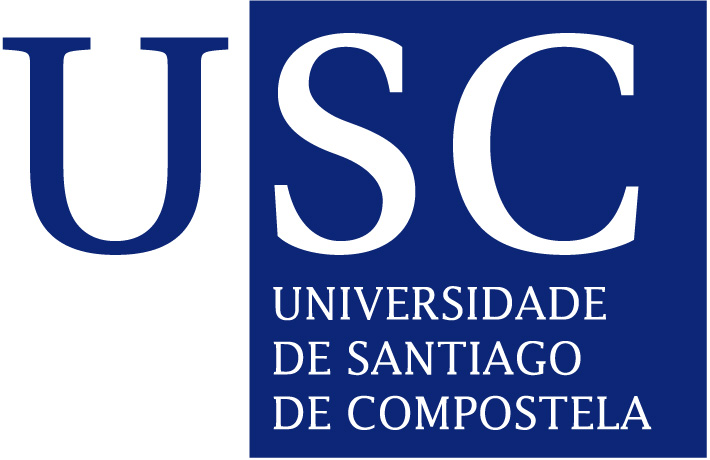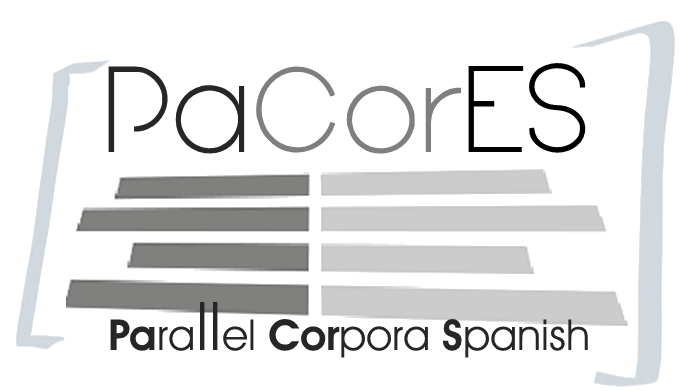

The standard search function searches the entire core corpus by default. Here you can choose to include or exclude Europarl, TED or Global Voices from your query.
In the advanced search you can refine your search using different filters from the drop-down menus. In addition, you can activate or deactivate the options above the search fields.
Lemmatization will be applied to your search by default. Enter your search term within quotation marks " " to search for the exact word form or the exact phrase (s. table 1 and 2).
The search supports single (?), multiple character (*), and fuzzy (~) wildcard searches (s. table 1 and table 2).
For more complex searches, you can use the operators AND, OR, NOT and the distance operator ~ or a combination of them. These searches must be preceded by the expression [SS] (Solr Search) (s. table 1 and 2).
You can search for one word or for a word sequence (= multi word search) (s. table 2).
Results of multi word searches include text fragments in which the queried words appear at a distance of 0, 1 or 2 words between them. For longer distances between the searched words, attach the distance operator ~3, ~4, etc. to the last word of the query and begin the query with the [SS] operator.
In multi word searches you can also use the multiple character wildcard (*) to query any token (typically a word). You can also use the regex expression [a-z]+ to search for any word These searches must be preceded by the expression [SS] (Solr Search) (s. table 2).
The advanced search function supports bilingual searches. To search for an expression with a specific correspondence in the other language, enter each term (words or word sequences) in the corresponding language field (s. table 3).
| Search | Results |
| brought | bring, bringing, brings |
| convendría | convino, convenía, convenido… |
| "brings" | brings |
| "convendría" | convendría |
| *posed | composed, proposed, supposed, imposed, exposed… |
| supp* | supply, support, supposed, supplement |
| re*ción | reinserción, recomendación, relación |
| ?ena | cena, pena, vena |
| supp?? | supper, supply |
| li????ing | listening, lightning |
| rithm~ | rythm, rithm, ritmos |
| [SS] insane OR mad OR crazy | It matches any bitext that contains any of these words: insane or mad or crazy |
| [SS] accountable NOT held | It matches any bitext that contains accountable but not held |
Word order in the search is relevant.
| Search | Results |
| niño bueno | niño bueno, niña muy buena, niñas buenas, but not buena niña |
| "niño bueno" | niño bueno |
| "for the sake of" | for the sake of suffering, for the sake of it, for the sake of her mother |
| make difference | make any difference, makes no difference, made a big difference (lemmas at a distance of 0, 1 or 2 words in the same order) |
| quedar remedio | quedó más remedio, quedaba otro remedio, queda expuesto sin remedio |
| llevar a cuestas | llevar a cuestas, lleva nada a cuestas, lleva siempre a cuestas … |
| love *ing | love telling, loved criticizing, loves feeding |
| Search | Results |
|
ENGLISH: courage ESPAÑOL: valor |
Bitexts where courage corresponds to valor. |
|
ENGLISH: courage ESPAÑOL: [SS] NOT valor |
Bitexts where courage does not correspond to valor |
If the search term is preceded by [SS] (Solr Search) you are in full command of the query syntax which is used by the underlying query tool Solr. Version 7.5.0. For more information about Solr query syntax, please click here.
Matches are displayed in sets of 100 bitexts.
The language entered in the search is considered the original language. In bilingual searches for sorting and retrieval, the original language is considered to be English.
Matches in the original texts are displayed first in the left column. Matches in the translated texts are displayed afterwards in the right column. In cases where both versions are translations from a third language or the original language is unknown, English is conventionally presented in the left column and Spanish in the right column.
As for the sorting of the results, the matches in the original texts are shown first, followed by the matches in the translations and, finally, the matches in translations from third languages.
Reference information is displayed in square brackets after every match, comprising work ID, and the corresponding section of the work: part and/or chapter [0000, 1, 1]. By clicking on the reference will take you to a page where you can expand the context and eventually access more details of the bibliographic information.
You can find following abbreviations within the texts:
[n_t_s] in the translation text means that an original string has not been translated, which is also included in square brackets.
[a_s_t] in the original text means that a sequence, shown in square brackets, has been added in the translation.
[…] indicates that a fragment of text has been omitted from the work (in original and in translation).




